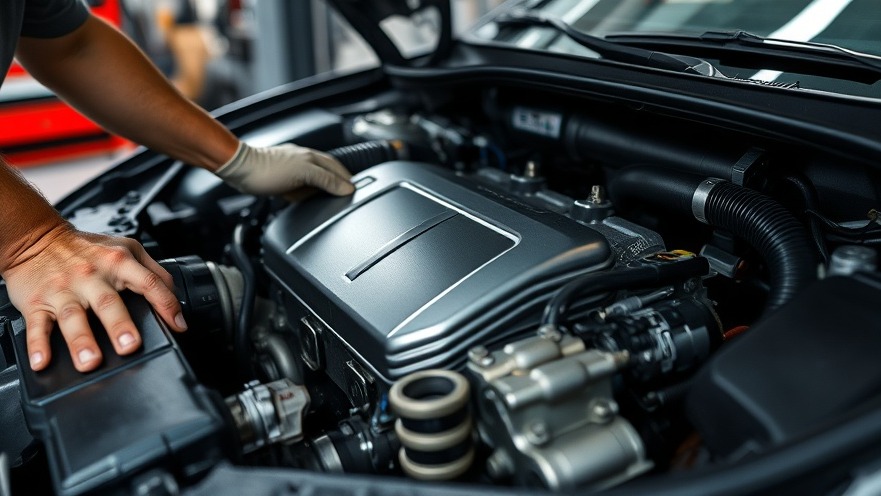
Essential Car Maintenance for Beginners: A Step-by-Step Guide
Owning a car is thrilling, but keeping it in excellent condition can sometimes feel overwhelming, especially for new owners. Whether you drive a sedan, an SUV, or any other type of vehicle, understanding basic car maintenance is crucial. In this guide, we'll break down what you need to check and how often, ensuring that your ride stays smooth and lasts longer.
In How To Maintain Your Car For Beginners (ULTIMATE GUIDE), the discussion dives into essential car maintenance tasks, exploring key insights that sparked deeper analysis on our end.
Understanding Your Car's Hood: Safety First
Let's start with the most fundamental aspect of car maintenance – the hood. Most cars feature a hood release handle located by the driver's seat. After pulling this handle, you might notice the hood remains locked due to a secondary safety latch. This design ensures that the hood does not accidentally pop open while you’re on the road, preventing dangerous situations.
When you lift the hood, it’s important to ensure it stays up safely. Some vehicles have built-in gas shocks that support the hood, while others require a manual prop rod. Over time, these shocks can weaken, leading to safety risks. Rather than improvising with objects like sticks, consider purchasing safety clamps designed for hood support, maintaining safety without damaging your car.
The Importance of Engine Oil: Keep It Flowing Smoothly
One of the most important fluids that every car owner needs to monitor is engine oil. It lubricates the car's moving parts, preventing overheating and potential engine damage. Aim to check your oil every month. Simply start the vehicle for a few minutes, turn it off, and use the dipstick to assess the oil level.
If the oil is low, carefully add the recommended type, as specified in the owner's manual. Regular oil changes, typically every 5,000 miles or as suggested, are essential for the longevity of your engine. A sign of trouble can be dark oil or metal particles, meaning it’s time to seek professional help.
Fluid Checks: Beyond Engine Oil
Your car relies on various other fluids to function correctly, including brake fluid, transmission fluid, coolant, and power steering fluid. Each of these plays a specific role in vehicle safety and performance:
Brake Fluid: A spongy brake pedal can be a warning sign, while brake failure may lead to serious accidents. Monitor fluid color and level regularly.
Transmission Fluid: Necessary for smooth gear shifting, it requires careful checking and topping up, especially when levels drop.
Coolant: Doing regular checks here ensures the engine doesn't overheat. Always use the recommended type to avoid damaging the engine.
Power Steering Fluid: Essential for easy steering; low levels can lead to unsafe driving conditions.
Filters and Battery: Keeping Things Fresh
Air filters are another critical component, often easy to replace. Inspecting your engine air filter regularly will ensure that your engine gets the clean airflow it needs. Additionally, pay attention to your vehicle's battery. Issues starting? Check the voltage with a multimeter. A proper maintenance routine can prevent unexpected breakdowns.
Tire Maintenance: Safety on the Road
Proper tire maintenance is essential for safe driving. Inspect them regularly for wear and ensure they have the right amount of tread – using the penny test is a simple method. Rotate them consistently according to your car's manual to guarantee even wear.
The Last Step: Keeping Your Car Clean
Finally, maintaining the aesthetics of your vehicle can go a long way in preserving its value. Regularly wash and clean your car inside and out to protect the paint and upholstery. These small habits not only enhance the car's appearance but also help avoid more significant repairs down the road.
In summary, taking care of a vehicle doesn't require expert knowledge; it simply involves routine checks and small habits that can save time and money over time. Don’t wait for problems to arise—establish a maintenance routine and enjoy peace of mind on the road!
 Add Row
Add Row  Add
Add 




Write A Comment